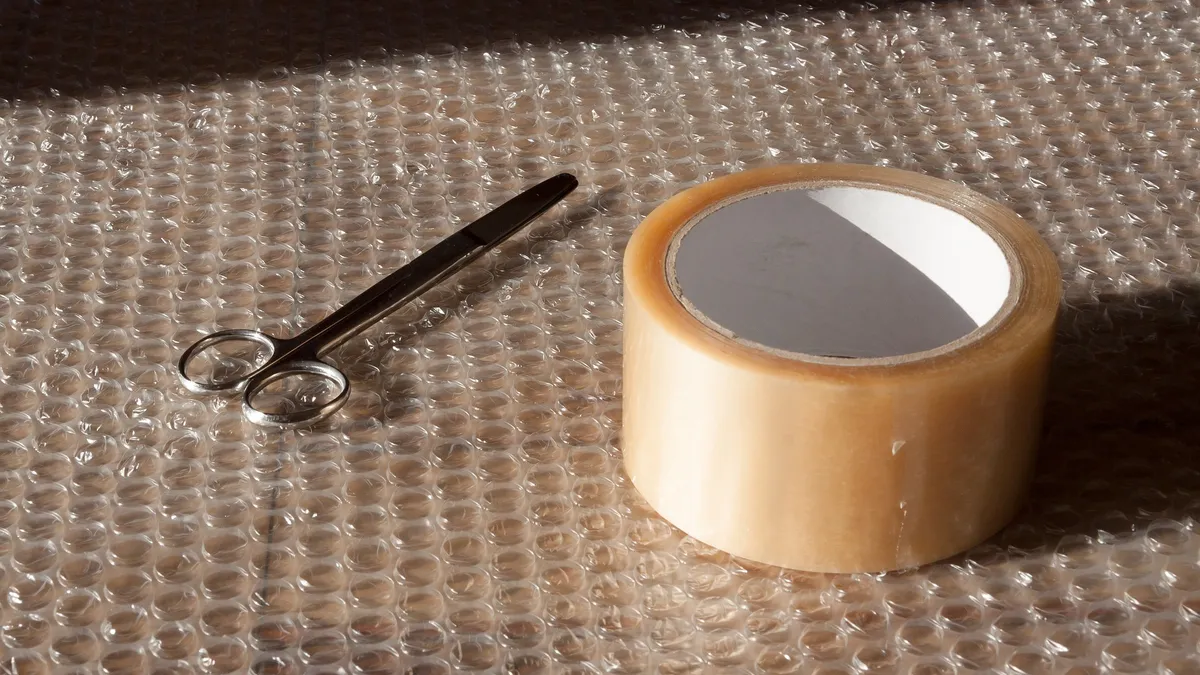Dive Brief:
- Sealed Air announced plans to make its packaging solutions 100% recyclable or reusable by 2025.
- The company plans to accelerate its use of recyclable materials, expand reuse models for packaging and collaborate with its global partners on the initiative.
- "It’s our responsibility to build a waste-free future, keep our oceans clean and leave a lighter carbon footprint," Sealed Air President and CEO Ted Doheny said in the press release.
Dive Insight:
Sealed Air is one of more than 250 signatories to the New Plastics Economy Global Commitment, led by the Ellen MacArthur Foundation in collaboration with UN Environment. It includes companies representing 20% of all plastic packaging produced globally, featuring such heavyweights as Danone, H&M Group, L’Oreal, Pepsico, Coca-Cola and Unilever.
The goal, the organization says on its website, is to end plastic as waste or pollution and create a circular economy for plastics. It requires three actions:
- Eliminate all problematic and unnecessary plastic items.
- Innovate to ensure necessary plastics are reusable, recyclable or compostable.
- Circulate all the plastic items in use to keep them in the economy and out of the environment.
Only 9% of the 6.3 billion metric tons of plastic created in the six decades since it came into use, has been recycled. The vast majority, 79%, is accumulating in landfills or sloughing off in the natural environment as litter.
Sealed Air said it was focusing on innovations in product design, renewable and recycled materials and recovery processes, including designing and packaging solutions that are 100% recyclable or reusable. It has set a target of 50% average recycled content across all packaging solutions, of which 60% will be post-consumer recycled content.
The company is investing in an expanding portfolio of solutions such as food packaging made from plant-based starch and recovered materials, plant-based cushioning foams, newly released Cryovac Darfresh skin packaging options made with recycled Polyethylene terephthalate (PET) materials — which help extend shelf life and lessen food waste — and curbside recyclable temperature assurance solutions.













